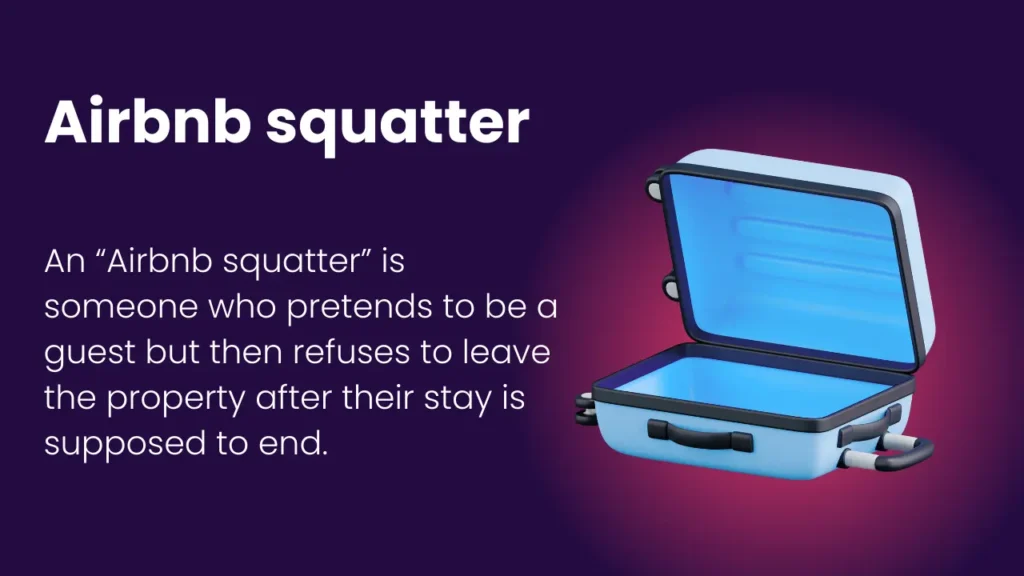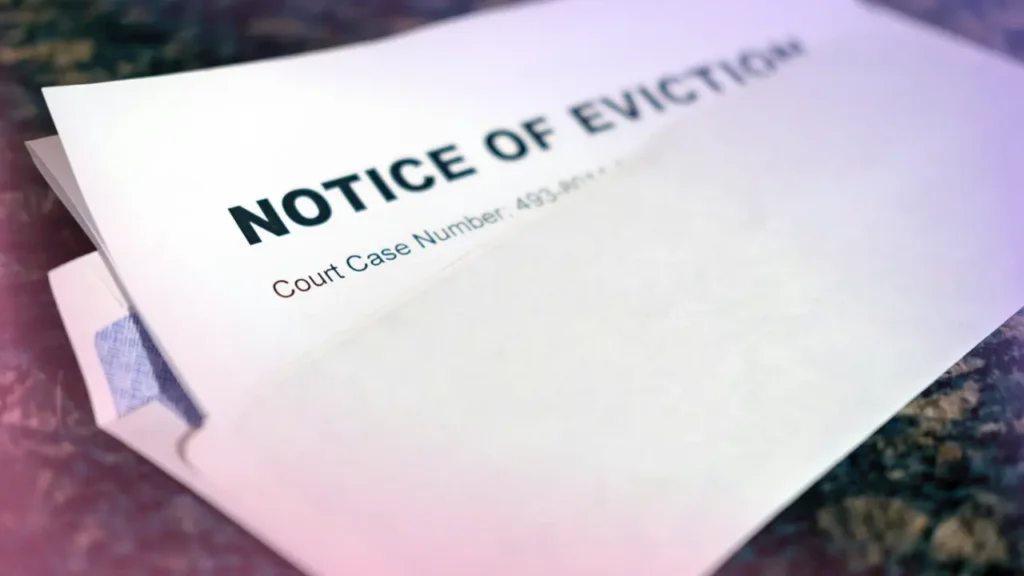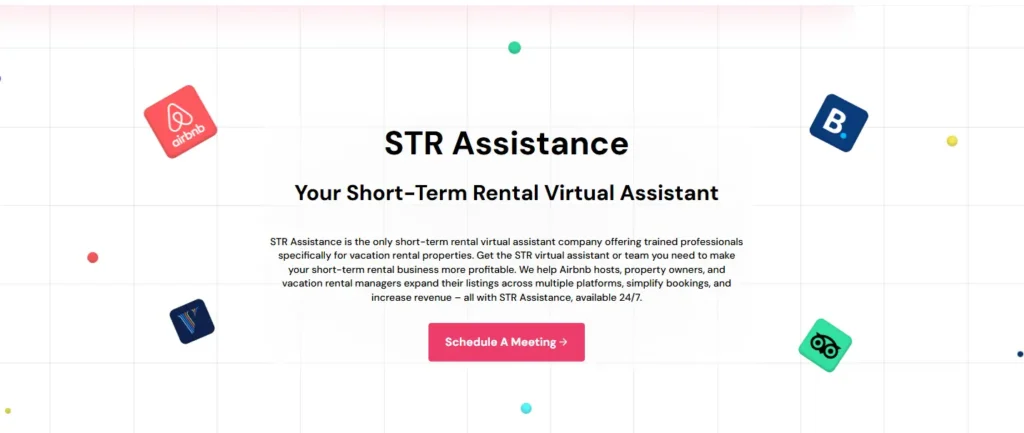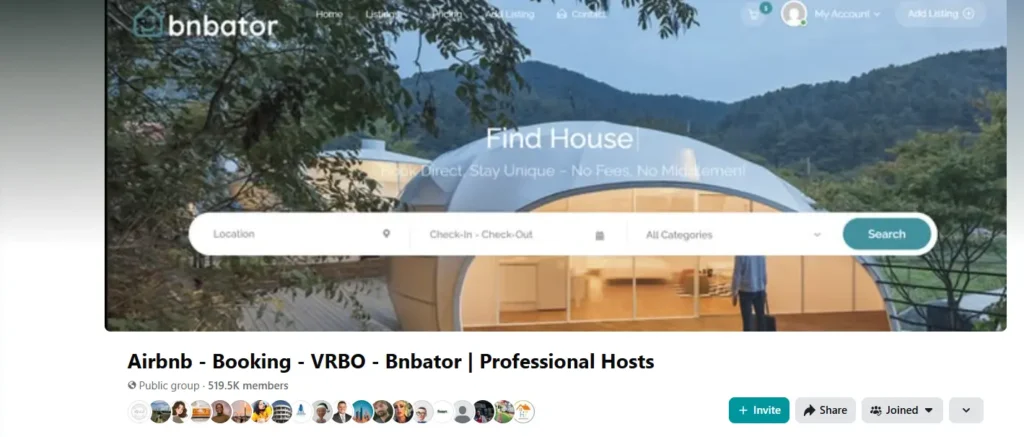Airbnb squatters are guests who refuse to leave and may use tenant laws to stay without paying. They cause big financial losses, legal trouble, and stress for hosts. Strong guest screening, smart security systems, and proper insurance are the best defenses. Hosts should know local laws, build support networks, and stay prepared with clear processes to protect their business.
In 2021, a host in Brentwood, Los Angeles, welcomed a guest for a one-month stay. The guest checked in politely but refused to leave at checkout. Weeks passed, and the host learned the hard truth, the guest claimed tenant rights. What began as a simple Airbnb booking became a year-long, costly battle.
A squatter is someone who pretends to be a guest but refuses to leave once the booking ends.
For Airbnb squatters, hosts face big financial loss from unpaid stays and cancelled bookings. Their reputation suffers if future guests see delays or problems.
A guest who stays 30 days or more can often claim tenant rights, making removal through eviction the only legal option for the host.
We know how tough squatter cases can be because we’ve faced them ourselves at STR Assistance. From guests who refused to leave to legal risks that dragged on, we built systems that actually work. This real experience helps us guide other hosts, whether it’s using the right message, keeping strong records, or bringing in the right local support fast.
Today we will go deep into the legal rights of squatters. We will explain how eviction works and how hosts can solve these problems. There are solutions like strong guest screening, smart technology, and spotting red flags early. We will also share real-life examples to show how hosts deal with squatters in practice.
Understanding Airbnb Squatters: Definitions and Legal Distinctions

A squatter is someone who stays in a property without permission and refuses to leave, often by pretending to be a guest. They look for loopholes in housing laws, claim tenant rights after long stays, and use delays in the legal system to extend their time without paying.
Simply, they book your property, but when the stay is over, they stay put. These squatters take advantage of rental laws, loopholes, or slow eviction rules. Some may claim tenant rights after a certain number of days. This makes it very hard for a host to remove them quickly.
For hosts, squatters are more than just a headache. They block your calendar, stop new bookings, and may even damage your place. In worst cases, they cost thousands in legal fees and lost income.
Now, it’s important to understand how squatters are different from normal guests or simple overstays. This helps hosts spot red flags early and respond in the right way.
A legitimate guest books through Airbnb, pays for their stay, and leaves on time. They follow the house rules. No issues here. In contrast, an overstay happens when a guest misses checkout. Sometimes it is a mistake. Flight delays, confusion about dates, or personal emergencies cause this. But a squatter is different. They refuse to leave, even after Airbnb support or host requests. This is not confusion.
The main difference is intent. Overstays usually come from mistakes or emergencies. Squatters plan to stay without paying more. They look for weak points in the system.
How Airbnb Squatters Exploit Short-term Rental Laws?
Airbnb squatters trick hosts by using loopholes in rental laws. The most common one is overstaying beyond 30 days. After that, they can claim tenant rights instead of being treated as guests.
Claiming Tenant Status: The biggest trick squatters use is claiming “tenant rights.” Once they meet the legal threshold, they can demand due process. They may call the police on the host, claiming an illegal lockout.
30-Day Tenant Protection Rules: Many cities and states have laws that protect tenants after 30 days of continuous stay. Squatters know this. They will book a property for just long enough to cross that line. Once they pass 30 days, they stop being “guests” and become “tenants.” At that point, Airbnb or the host cannot simply remove them.
Jurisdictional Variations: The rules are not the same everywhere.
- In California and New York, 30 days is the key mark.
- In Ontario, it is about whether the stay looks like a vacation or a home.
- In London, squatting is a criminal act, but tenancy laws can still apply if the stay looks like a lease.
Squatters use these differences to their advantage. They often target regions where tenant protections are strong and evictions are slow.
Platform Policy Gaps: Airbnb has host protections, but there are limits. Airbnb can cancel reservations or support hosts with payment disputes, but it cannot override local tenant laws. Once a guest qualifies as a tenant, Airbnb steps back. Squatters, knowing it uses the gap between platform policy and local housing law to buy more time in the property.
Avoiding Eviction Processes: Formal eviction is costly and slow. Squatters know that hosts often do not want to spend months in court. They drag out communication, make partial payments, or file complaints to delay action. Every delay keeps them in the property longer without paying for new nights.
Current Legal Definitions by Major Jurisdictions
Some regions treat squatting as a criminal act, but many still require a formal eviction once tenant rights apply. Knowing the local definition is important for every host to protect their property.
United States — California
- A short-stay guest is a “transient occupant.” California landlord-tenant rules don’t apply to transient occupancy of 30 days or less. After 30+ consecutive days, the guest is treated as a tenant, and you need a court eviction. Senate Judiciary
- Hotels cannot “28-day shuffle” a resident to dodge tenant status. That practice is illegal under Civil Code §1940.1. Justia Law
United States — New York (state + NYC focus)
- New York’s RPAPL §711 says a hotel resident in possession for 30+ days counts as a tenant (not a transient). It also defines “squatter” as someone who entered without permission. NYSenate.gov
- NYC treats unlawful evictions of anyone who lawfully occupied for 30+ days as illegal. Removal requires a court order. NYCOURTS
- NYC short-term rental rule (Local Law 18): no entire-home stays under 30 days unless the host is present and registered. This affects risk planning for hosts. AP News
United Kingdom (England & Wales)
- “Squatter” is not a precise legal term. Law uses “trespasser” for someone with no right to occupy. Shelter England
- Squatting in a residential building is a criminal offence (LASPO 2012 s.144). Removal usually goes through IPO/possession routes. Do not use self-help or force. GOV.UK
- Short holiday lets are often a licence to occupy (fewer occupation rights). If the occupation looks like a tenancy (exclusive possession, rent, no true holiday purpose), landlord-tenant protections can apply. VisitBritain.org
- London has a 90-night yearly cap on short-term lets without planning permission. London City Hall
The Real Cost of Airbnb Squatters: Financial and Operational Impact
Airbnb squatters create losses that go far beyond unpaid nights. Hosts face financial strain, legal complications, business disruption, and damage to their market reputation.
Direct Financial Losses
The biggest hit comes in direct money lost. For example, lost booking revenue can add up fast: $200 per night × 60 days = $12,000. Here, based on the country, legal fees added on average $5,000–$15,000 for eviction cases.
Property damage and cleanup costs after squatters leave can be high. Many hosts report broken furniture, stolen items, and heavy cleaning needs like trash removal or pest treatment, which can cost thousands.
Higher insurance premiums from repeated claims are another hidden cost. If squatters cause damage more than once, insurers may raise rates or add stricter terms, making coverage more expensive over time.
Tenant Rights Complications
Once a stay crosses 30 days, tenant laws can apply and complicate removal.
- 30+ day stays trigger tenant protections.
- Eviction requires a formal process and long timelines.
- Court costs and lawyer fees add up quickly.
- The sheriff’s department may be needed to enforce the eviction.
Business Disruption
Squatters disrupt hosting operations and future income streams.
- Cancelled bookings and damaged reputation with guests.
- Time drained in legal battles and paperwork.
- Stress and mental health impact on hosts.
- Family disruption if the unit is part of the host’s home.
Platform and Market Consequences
Problems extend to Airbnb itself and the wider rental market.
- Risk of listing suspension during disputes.
- Market reputation damage from news or guest complaints.
- Insurance claims can be delayed or challenged.
- Negative reviews are affecting future bookings.
Get to know: How to see Airbnb reviews without writing one.
Technology and Tools for Squatter Prevention
Guest screening platforms, smart home security systems, and property management software work together to reduce squatter risks. Screening tools verify identity, rental history, and flag risky reservations. While smart tech like locks, sensors, and cameras help control access in real time. Property management software adds risk scoring, clear communication, and proper documentation to stop squatters from exploiting loopholes.
Guest Screening Platforms
One of the strongest defenses against Airbnb squatters is proper guest screening.
Tools like Autohost help by running automated background checks and flagging risky reservations before you accept them.
Many hosts also rely on third-party verification services that confirm government IDs, contact details, and even payment reliability.
Some screening platforms or hosts themselves now go further with social media checks to check whether their profile matches their booking behavior.
Another way is rental history verification. Rental systems may review past stays, ratings, and host feedback to confirm a guest’s track record. Together, these tools make the screening stronger with Airbnb’s built-in verification.
Even if you find any bad guests, here’s how you can deal with bad Airbnb guests.
Smart Home Security Systems
Smart technology lets the host manage Airbnb remotely and reduces the chance of squatters slipping through.
Smart lock systems with remote access let you change or disable codes the moment a booking ends, so an overstaying guest cannot keep using old keys.
Some hosts add occupancy monitoring sensors that detect motion or the number of people inside. This gives early warning if a guest tries to extend their stay without approval.
Most important are the security cameras that are placed in legal areas like entrances or exterior spaces.
Finally, automated check-in and check-out systems streamline the process, helping you verify exactly when a guest arrives and leaves. This reduces confusion over access issues and avoids disputes often mistaken for bugs, guest errors, or even host mistakes.
If you ever face an issue with Airbnb Check-In, here is how you can find out If It’s a Bug, a Guest Error, or a Host Mistake.
Property Management Software Integration
To prevent squatters, you can count on Property management software, too.
Many platforms now include risk assessment scoring systems to highlight suspicious bookings before you accept them. They also offer automated communication workflows, so guests get clear check-in and check-out instructions without delay.
You can reduce misunderstandings that squatters often try to exploit. Good software also includes incident documentation tools where you can log disputes or damages in real time.
For hosts managing multiple listings, multi-platform booking management keeps calendars synced across Airbnb, Vrbo, and other sites, preventing double bookings that create access
Multi-Layer Guest Verification: Beyond Airbnb's Basic Checks
A strong pre-booking assessment beyond Airbnb basic checks helps spot red flags like vague profiles, last-minute reservations, or unclear booking reasons. Extra checks like IDs, work proof, and past reviews help keep guests safe. Also, a risk scoring system makes it clear when to approve or reject bookings. Host should watch for red flags in communication, like vague answers or legal threats, as they often signal squatters.
Pre-Booking Assessment
Relying only on Airbnb’s guest screening is not enough. Hosts can spot risks early by running their own screening process.
Next comes how guests communicate with you. A genuine guest asks normal travel questions, while a risky one may avoid details or push for discounts [not mandatory].
Booking behavior also matters. For the pre-booking assessment, check these details about the guest,
- Last-minute reservations
- One-night weekend stays
- Payment method issues (declined cards, multiple payment attempts, or mismatched account details)
- Unclear reasons for long bookings often signal higher risk.
Squatters often target 30 days or more to trigger tenant rights in certain regions.
Enhanced Verification Process
To be safe from any unwanted guests, it is always best to create an enhanced verification process.
- Airbnb does ask for government ID. You can also ask for a scanned passport or driver’s license.
- For employment verification, hosts can ask for a work email or proof of contract. It helps filter out people who may try to use your place as a semi-permanent residence without proper intent.
- Checking past reviews on Airbnb is useful, or asking direct references from previous hosts gives you a clearer picture of how the guest behaved in another home.
- Many hosts also look at the guest’s social media presence. A complete profile with consistent details may mean safe guests.
- In some cases, especially if the booking is local, confirming the guest’s local residence can protect against “squatters”.
Risk Scoring System
You can build a risk scoring system. This works by creating point-based criteria that rate factors like
- ID quality
- Length of stay
- Booking history
- Communication style
Once the score is calculated, you can set clear thresholds for automatic approvals or rejections.
For high-risk bookings, it is best to request extra documentation such as proof of employment or additional ID.
Communication Red Flags

Communication red flags mean the guest did not communicate well, revealing a lot.
If the booking purpose is vague and they cannot explain why they need the stay, that is a warning sign. Their hesitation to provide basic information like the number of guests or the reason for travel is another red flag.
Many squatters use emergency housing language, saying things like they “just lost their home” or “need a place right away.”
Some guests even hint at legal threats early on, such as “you cannot refuse me” or “I know my tenant rights.” You should take these signals seriously.
Airbnb Squatter Laws: What Hosts Need to Know by Location
Airbnb squatter laws do not exist as a single, universal concept; instead, squatting in an Airbnb is treated as a landlord-tenant issue, subject to local laws, where a guest may gain tenant rights after a certain period, such as 30 days, requiring a formal eviction process. But it may vary by location.
US Tenant Laws
Most U.S. states treat a guest as a tenant after a set time, and 30 days is a common trigger.
In New York, a person who lives in a unit for 30 days gains tenant protections. New York City also enforces Local Law 18.
Short stays under 30 days require host presence, registration, and a two-guest cap. This reduces illegal “de facto hotels,” and it changed how platforms accept bookings in the city.
Once a guest becomes a tenant, you must use the eviction process, not a lockout. Courts in some states say the 30-day line still creates tenant status even if you try “check-out and back in” tricks. AP News New York Post
Tenant Laws for Canada
Canada is province-based. In Ontario, the Residential Tenancies Act (RTA) does not apply to accommodation for the “travelling or vacationing public” under Section 5(a). That covers
genuine short-term stays with hotel-like service. If the stay looks like housing, the RTA can apply, and the guest may be a tenant, even if you used Airbnb.
In British Columbia, short-term rentals are treated as vacation or travel accommodation and sit outside the Residential Tenancy Act. But a tenancy can form if the unit becomes someone’s home. SFG Paralegal Services LLP
Montréal now limits short-term rentals to the summer months. Expect more city caps or registration. If a long stay turns into housing, use the provincial tribunal process (e.g., Ontario LTB).
Tenant Laws for the UK & Europe
In England and Wales, squatting in a residential building is a criminal offence under LASPO 2012 s.144. Call the police for true trespassers. This is separate from tenants and licensees.
If a paying guest gains tenancy-like rights, you need a court order to evict. Across the EU, the new Short-Term Rentals Regulation focuses on platform transparency and data-sharing. It does not set eviction rules.
For example, Paris allows up to 120 nights per year for a primary residence and is moving toward 90 nights in 2025 in some cases. Spain and other countries are also tightening licensing and registry checks for tourist flats. Legislation.gov.uk
Tenant Laws in Other Major Markets
Singapore: Private residential stays must be at least 3 months. Short stays under 3 months are illegal in private homes. Urban Redevelopment Authority
Japan: Under the Minpaku law, hosting is capped at 180 nights per year. Extra local rules apply by ward or city. Airbnb Japan
Australia (examples): Rules vary by state and council. NSW excludes short-term stays of 3 months or less from residential tenancy laws and uses a separate STRA framework with registers, codes of conduct, and local night caps in some LGAs (e.g., Byron Shire’s 60-night cap zones). Other states consider levies, registration, or seasonal limits. Always check your council plus state Fair Trading guidance. The Australian
Dubai (UAE). “Holiday homes” are legal only with a DTCM licence. You must register guests and report check-ins/outs in the DTCM system. Operating without the licence risks fines and delisting.
Understanding Airbnb's Squatter Policies and Support Options
Airbnb has no special squatter policy. In many places, a guest can turn from a short-term renter into a tenant after about 30 days, and then you need a formal eviction to remove them.
Airbnb’s policies, such as the Host Protection Insurance, do not provide a specific program to deal with squatters or supersede local tenant laws.
Official Airbnb Stance
Airbnb recognizes the risk that a guest might overstay or refuse to leave. But Airbnb is not a legal body that enforces local eviction laws. If a guest stays past checkout and claims rights, voice of legal or government rules, then the host must use the legal eviction route. Airbnb doesn’t remove squatters just because a host reports them.
AirCover Protection Program

AirCover (for Hosts) is Airbnb’s umbrella protection program that replaces and expands on older protections like just “Host Guarantee.” Airbnb
Airbnb uses machine learning / algorithms + risk signals (length of stay, type of booking, notice period, location, etc.). They try to flag reservations that might pose a higher risk (damages, parties, etc.).
If a guest damages your place or your belongings during a stay, Airbnb may reimburse up to USD 3 million under certain conditions. This covers major damage, extra cleaning, smoke or pet damage, and sometimes loss of income if a booking must be cancelled due to damage. Airbnb
Platform Support Process
If something goes wrong (damage, guest refuses to leave, suspected squatter behavior), here’s how Airbnb’s support process tends to work:
1. Report via the Resolution Center. Host documents damage (photos, receipts). Submit requests within deadlines (often within 14 days after checkout for damage).
2. Guest response window. Airbnb gives guests a chance to respond to the host’s claim. Sometimes they must agree or contribute.
3. Airbnb review. Airbnb (or its insurer) reviews the evidence. They check whether the claim fits the policy terms.
4. Eviction or legal help is limited. If a guest refuses to leave after checkout, Airbnb may offer advice or mediate. But the host usually must pursue local legal eviction.
5. Priority support for some hosts. In some places, hosts with “Superhost” status or outside Washington state get priority in claims/reimbursement routing.
Red Flags: How to Identify Potential Squatters Before They Arrive
Some potential red flags include guests suddenly using legal terms or insisting on written communication only. Others may bring in extra furniture without informing you. Whenever a guest’s behavior feels suspicious, taking quick action and keeping communication clear can help protect you.
Pre-Booking Warning Signs
You can start assessing your guests long before they come to your property, and this starts with pre-booking screening. Here are some very common signs you can check for,
- A brand-new profile with no reviews is a common warning sign.
- Guests asking for extended stays of 28 days or more may be trying to gain tenant rights.
- Vague reasons for travel or listing a local address can signal hidden motives.
- Last-minute requests for long stays often point to a higher risk.
- If a guest avoids giving required details, that is a clear red flag.
- Payment problems or unusual requests can indicate future trouble.
- Some guests may not reveal how many people will stay, but you should try to find out how many guests will stay.
During-Stay Red Flags
When a guest checks in, they want their privacy and do not want hosts to always interrupt them. But what if the guest’s intent is fishy? That’s why hosts need to check occasionally to understand the intent of the guests.
- Guests who go silent after check-in may be trying to avoid attention.
- Frequent complaints about the property can be a tactic to justify staying longer.
- Asking for a lease agreement is a strong sign they want tenant status.
- Mentioning tenant rights or housing laws suggests they may resist leaving.
- Refusing property inspections is a red flag for hidden misuse.
- Neighbor reports of strange or suspicious activity should never be ignored.
- The guest may refuse to leave, which is the big red alert for you.
Communication Pattern Analysis
Your guest may suddenly start behaving aggressively or try to use legal terms. In such a situation, you’d better carefully analyze the communication pattern to figure out if they are squatter or not.
Legal language in messages: When a guest starts using legal terms like “habitability,” “tenant rights,” or “constructive eviction,” it shows they may be positioning themselves as a tenant. This is not normal for short-term travelers.
Hostile or threatening tone shifts: A sudden change from polite to aggressive messages should be your concern. Guests may threaten bad reviews, complaints, or legal action if they do not get what they want.
Documentation of conversations by the guest: If a guest insists on written communication only or repeatedly asks you to confirm details in writing, they may be building evidence. This is common in tenancy disputes. Courts often rely on written records.
References to lawyers or legal action: Mentioning a lawyer, lawsuit, or filing with housing authorities is a serious red flag. Terms like “unlawful eviction” or “breach of contract” show intent to fight removal. At this stage, consider legal advice yourself.
Claims of property defects or safety issues: Guests may point to defects like “unsafe conditions,” “mold,” or “lack of heat.” In legal terms, these tie to “warranty of habitability,” which is a tenant protection in many places.
Behavioral Indicators
Behavior can tell you a lot, such as bringing extra furniture or having more people. Check for these,
- Unusual spikes in utility usage can mean the guest is treating your place like a permanent home.
- If mail starts arriving in their name, they may be trying to establish residency.
- Bringing in extra furniture or large amounts of personal items is a strong warning sign.
- Having more people than the booking allowed often signals long-term or unauthorized use.
Emergency Action Plan: Step-by-Step Response to Squatter Situations
After being so alert, or some host may not stay that alert, and a guest creates a scene by claiming their tenant rights. But what then? Should you scream or file to the police?
First, document everything and keep all booking records. Always communicate with the guest through Airbnb messages for a clear trail. If the guest refuses to leave, you may need to go to court and take legal action to reclaim your property. For future bookings, tighten your screening process. And when things escalate, hire a lawyer, file a case, and present solid evidence.
Immediate Response (First 24 Hours)
The first day you get to know your guests are squatters, you should take some instant actions that can help you later to fight with the squatters.
Hour 1-2: In the first hour or two, do not panic. Start by taking photos and videos to capture what is happening. Open a case with Airbnb support right away and report the issue. Call your insurance company and let them know about the incident. At the same time, start a simple log where you write down every detail with time and date.
Hours 2-12: As the hours move on, try to talk calmly with the guest and ask them to leave. Keep all words inside the Airbnb message system. If the situation looks like trespassing under local law, make a report to the police. Let your neighbors or building manager know, so they can watch for any strange activity. Use this time to book a short call with a lawyer so you are ready if things get worse.
Hours 12-24: By the end of the first day, pull together all booking records, payment proof, and message history.
Look up how local tenant laws may apply, because in some places, guests gain rights after a set number of days. If the matter feels urgent, reach out to an emergency legal service for quick advice.
Finally, let any upcoming guests know you may need to adjust or cancel their bookings so you protect your calendar.
Short-Term Actions (Days 2-7)
From the second day, you may start considering taking legal actions. But going to court won’t help either. You have to collect documents, and also take care of your Airbnb rental business.
Legal Consultation: In the first week, your main focus is to shift from reaction to strategy.
Meet with a lawyer or real estate attorney to confirm if the guest is a tenant or a trespasser under your local law. Ask about the eviction process, the timeline, and what you cannot do. You can not do a self-help eviction, like changing locks, which is usually illegal. If a court filing is needed, get to know the exact steps so you are ready to act fast.
Documentation Enhancement: Strengthen your documentation during these days. Keep the photos you have taken on the first day of the property to show its condition.
Collect witness statements from neighbors if they saw unusual activity. Keep your message log organized and calculate the financial losses from blocked bookings or extra expenses. This evidence will support your case in court or with Airbnb.
Business Protection: Protect your business as well. Manage your future calendar to avoid new guests clashing with the issue.
If possible, prepare backup accommodation options in case you need to relocate upcoming bookings. Start your insurance claim early, since approvals take time. Keep Airbnb updated through their platform tools so you have an official record of every step.
Long-Term Resolution (Weeks 2-12)
You need to think of the long-term plan also how you would fight with the squatter, what would be the legal proceedings, and how would you recover financially.
Legal Proceedings: Over the next weeks, your focus shifts to formal legal resolution and rebuilding your business.
Start working with your attorney to file the case and arrange process service for the guest. Also, coordinate closely so your lawyer has every piece of evidence ready.
Prepare to present photos, witness notes, and financial logs in court. If a settlement is on the table, weigh the cost against the time and stress of a full trial.
Financial Recovery: At the same time, push forward on financial recovery. Continue with your insurance claim and provide all documents the court requested.
You can do the plan for repairs and get estimates for any property damage. Keep a record of lost bookings and revenue, as these numbers matter for both claims and tax deductions.
Business Continuity: By this time, you may have faced quite a significant loss in your rental business. So, it’s time to restore your property quickly. Next, it would be clever to consider upgrades to attract reliable guests again.
Add stronger security, such as smart locks or surveillance systems. Refine your screening so risky bookings are filtered out early. Use the lessons learned to build a prevention plan that makes future squatter situations far less likely.
Professional Communication: Managing Difficult Squatter Situations
When early steps have not worked, it’s time to take legal and professional action. You need to document, communicate through official channels, and let the legal system work.
It starts with a formal eviction notice. This notice is called an unlawful detainer notice.

The notice informs the squatters that they must vacate the property by a set deadline.
If they ignore it, you escalate to an unlawful detainer action (eviction lawsuit) in court. Alongside, keep all the evidence ready.
Courts then issue a judgment for possession if your case is successful. With this, the court grants a writ of possession. This authorizes the sheriff or local law enforcement to physically remove the squatters.
In some jurisdictions, police can also issue a trespass warning early in the process to prove the occupants were never lawful tenants.
In this situation, you should communicate with your lawyer, Airbnb support, your insurer, and local authorities. You must coordinate, not do everything alone.
Know more: What Happens if You Don’t Pay Airbnb Damages
Financial Safety Net: Insurance and Cost Management for Squatter Incidents
It is always best for hosts to get insurance to avoid any financial loss. But short-term rentals don’t fit neatly into one insurance type. Many owners use homeowner or landlord policies, but both leave big gaps. Vacation rental insurance covers guest stays, personal use, and empty periods. Proper Insurance also includes commercial business liability, too.
Insurance Coverage Options
There are several insurance facilities available, such as landlord insurance polices or squatters insurance.
Landlord Insurance Policies: Landlord insurance is for property owners who rent out their homes. It covers the building, certain damages, lost rent, liability for injuries, and sometimes legal costs for disputes or evictions.
Some add legal expense insurance to pay for a lawyer or court fees. Most also include liability if a guest or visitor is injured.
Specialized STR Insurance: These plans are made for Airbnb-style hosting. They cover guest-related incidents like damage or theft. Many include business interruption, so you get paid if you lose bookings during repairs. Some add platform-gap coverage to protect you where Airbnb’s AirCover stops. Proper Insurance is one key provider.
Proper Insurance’s Squatters Insurance: Proper Insurance now offers a squatter coverage option that many hosts find useful. It can pay up to $10,000 for actual expenses like court filings, sheriff’s fees, and other legal costs.
It also includes up to $20,000 in lost business revenue if you miss out on bookings or cannot rent during the eviction or repair process. This add-on is available in all 50 states at a fixed rate.
Self-Insurance Strategies
Many experienced hosts keep their own safety net with formal insurance.
A good rule is to hold an emergency fund with 3–6 months of operating expenses. This covers utilities, mortgages, or HOA fees if income stops. Some also keep legal expense reserves, since lawyer fees for eviction can run $3,000–$10,000 depending on the state.
Hosts also plan for revenue loss, since many landlord or STR policies don’t cover missed bookings. Business Interruption Coverage helps only with physical damage, so a personal reserve is key.
Cost Recovery Methods
When it is time for cost recovery, here is how you can do it,
- Optimize your insurance claim. Keep clear records, dated photos, and receipts. Submit everything on time.
- Try to recover legal fees. Ask the court for attorney costs in the judgment if your laws allow it.
- Use platform reimbursements. Apply through Airbnb’s AirCover for guest damages, extra cleaning, or lost income.
- Maximize tax deductions. Track legal fees, repairs, and lost revenue. Ask your tax pro what you can deduct.
- Use the small claims court for smaller losses. File on your own to save costs and move faster.
Financial Planning
If you want to avoid any financial loss, it’s smart to budget for legal contingencies and keep funds ready for unexpected disputes.
Some hosts set up retainer agreements with lawyers or property managers so help is available quickly. It is also wise to plan emergency funding sources like credit lines or savings accounts.
For larger incidents, a business loan can provide short-term cash flow until insurance or claims are resolved.
Real Airbnb Squatter Cases and Outcomes
There are several real-life scenarios where hosts faced stubborn squatters and serious squatters. Here we are highlighting some real-life incidents.
United States Case Studies
California Extended Stay Case (2023-2024):
In Brentwood, Los Angeles, guest Elizabeth Hirschhorn booked a six-month Airbnb stay in September 2021. After a short extension ended in April 2022, she refused to leave and stayed about 570 days rent-free, at $105 per night, racking up more than $42,000 in unpaid rent.
By June 2023, owner Sascha Jovanovic filed for eviction and back rent. Hirschhorn countersued, arguing the unit lacked a certificate of occupancy. A judge blocked the eviction, stretching the dispute to over 18 months. Legal fees commonly reach $3,000–$5,000+ in such cases.
Jovanovic stayed in the legal process and avoided self-help. Police became involved only at the end, when movers assisted and Hirschhorn left in November 2023.
Lessons
Have clear agreements with inspection rights and overstay penalties. In California, bookings over 30 days risk tenant rights.
Florida Self-Help Eviction Attempt:
In Florida, a number of short-term rental disputes have shown how dangerous it is for a host to attempt a “self-help” eviction. Under Florida Statute § 83.67, landlords and hosts cannot lock out a guest, cut utilities, or remove belongings without a court order. In one reported case, a host tried to forcefully remove an overstaying Airbnb guest by changing the locks. The guest sued, and the court ruled the host had violated the statute.
The proper path in Florida would have been to serve a 3-day notice for unpaid rent or a 7-day notice for other violations, then file an eviction action in county court.
Lesson
In Florida, even if the guest feels like a trespasser, treating them as such without the court process can backfire. Hosts must follow the legal eviction route to avoid turning a bad situation into a costly one.
Successful Prevention Examples
Airbnb squatters can be stopped if hosts take proper steps using technology and plans.
You can start with smart locks with time-limited codes, occupancy sensors, and real-time systems. There is Alertify catches suspicious behavior early and blocks re-entry after checkout.
Careful screening can signal red flags early stage. Plus, community networks such as local host WhatsApp groups or engaged neighbors can help with fast alerts.
There are many hosts who hire professionals to help them. Professional property managers add another layer with AI screening, legal expertise, and strict contracts. Reports show they cut squatter incidents and boost booking success by 30–50%.
Community Resources: Building Your Host Protection Network
Running a short-term rental is not just about guests and reviews. It is also about safety and support. Over the years, we learned that a strong host protection network makes a big difference when problems show up, including squatter issues.
STR Assistance

At STR Assistance, we are a short-term rental virtual assistant team providing dedicated Airbnb VA services to support hosts worldwide. With years of experience in rental management, we’ve seen how valuable it is for hosts to have more than just a single line of defense. We’ve handled situations where strong screening and quick response saved properties from much bigger problems.
We have dealt with difficult guest stays, including people who refused to leave. From those cases, we built systems that work. We know what to do first, who to call, and how to keep records. This is not theory; this is what we faced in real life. Because of that experience, we can guide other hosts as an experienced Airbnb co-host. Sometimes it is about the right wording in a message, sometimes it is about bringing in the right local help fast.
Local Host Communities

Other hosts in your city are a powerful resource. They know the local rules, they share warning signs, and they can give advice that fits your area. We always recommend joining local host groups. A quick post in a community chat can save you hours of stress.
Professional Service Networks
It is better to be part of good network of lawyers, cleaners, locksmiths, and property managers. When you face a squatter, timing matters. Having these contacts ready means you do not waste time searching when you are under pressure.
Emergency Response Partnerships
You must keep in contact with the Police, local housing authorities, and even trusted neighbors. We learned to keep these relationships warm before we ever needed them. When a problem came up, we already had people ready to respond.
Protecting Your Airbnb Business: Key Takeaways and Next Steps
Protecting your Airbnb business starts with knowing that squatters are guests who refuse to leave and may claim tenant rights after 30 days. They bring financial loss, legal trouble, and stress, and in many places, only a formal eviction can remove them.
Strong screening, smart technology, and good insurance reduce risks, while clear records and quick legal action help if a squatter stays.
Try to build a support network with local hosts, lawyers, and STR experts who can give you the backup needed to keep your business safe.
Frequently Asked Questions AboutAirbnb Squatters
Yes, some guests may refuse, and in that case, you must follow local eviction laws.
In many places, guests staying past a certain period can gain tenancy rights.
It depends on local laws, but eviction can take anywhere from weeks to months.
Airbnb may offer limited support through its Host Guarantee, but not always full compensation.
Overstaying means a guest stays past checkout, while squatting involves refusing to leave even after legal notice.
Set clear house rules, use shorter stays, and screen all guests carefully.
Doing so can break lease terms or local laws, and it’s strongly discouraged.
Only if you understand local tenancy laws, since long stays may give guests tenant rights.

